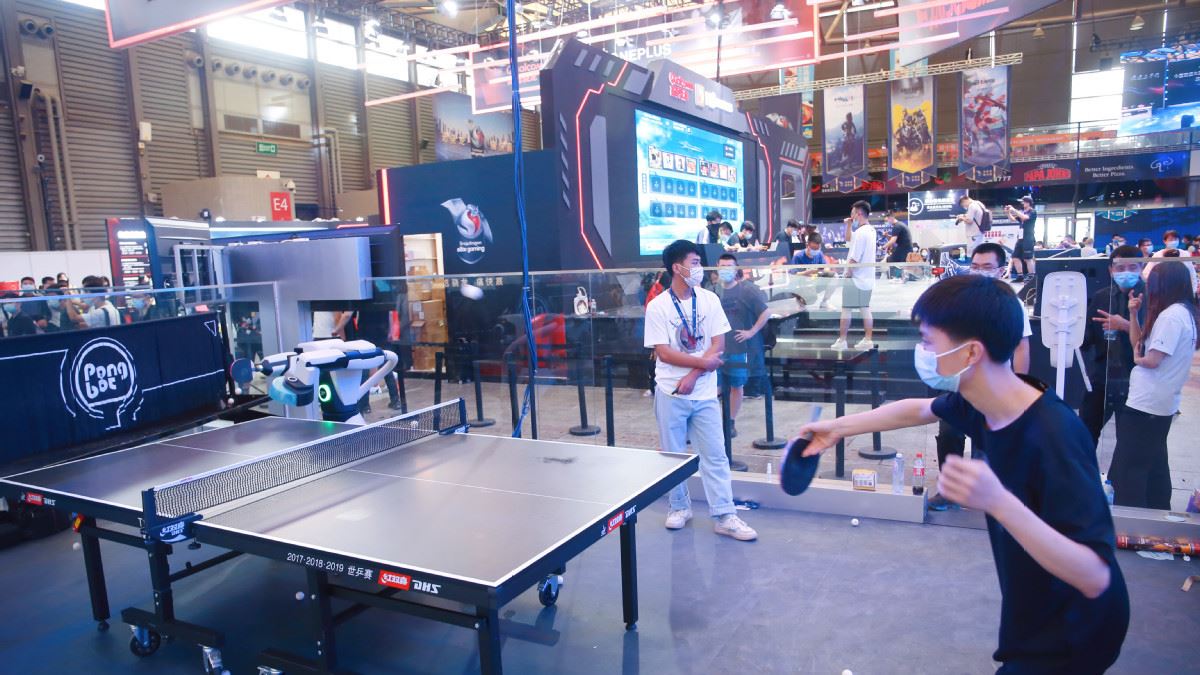Tech gives nations athletes extra boost

Technology was at the forefront of Chinas strong presence at the Tokyo 2020 Olympics, as artificial intelligence and other advanced technologies played a significant role in helping Chinese athletes in training and improving their performance.
Pongbot, an AI-enabled table tennis robot, has become a popular "coach" at the national training base for table tennis players. It can make high-quality shots at will and it never gets tired.
The robot can also adjust the speed and spin of the ball according to a player's level of aptitude. Through big data, it is able to gather and analyze the trajectory and movement of different athletes, and furthermore simulate competitors' movements to help their training.
"The AI robot no doubt replaces some of the work for coaches, especially when we have to take care of several tables during training," said Chen Bin, deputy dean of China Table Tennis College and the coach for retired table tennis world champion Ding Ning.
Codeveloped by China Table Tennis College and Siasun Robot& Automation Co, Pongbot is believed by many industry insiders to be the world's first AI ball-pitching robot.
"More importantly, it can also imitate the course of different players that human training partners usually find hard, for instance that of Japanese table tennis player Ito Mima. With this, we could offer more targeted training to our athletes," he said.
At the Tokyo Olympics, China ranked second in the medal count with 38 gold, 32 silver and 18 bronze medals, just behind the United States. In sports including volleyball, running, swimming, rowing and weightlifting, a large number of the country's athletes adopted high-tech training methods.
China's 14th Five-Year Plan (2021-25) highlighted the important role of technologies in driving the digitalization of key areas including sports. A guideline released by the State Council on the high-quality development of sports said that the nation will accelerate the application of smart manufacturing, big data and AI in the sports sector.
Quan Hongchan, the 14-year-old talented Chinese diver at the 2020 Tokyo Olympics, said on her Weibo account that behind her gold medal was not only her own efforts, but also the three-dimensional AI training system of the national diving team.
The advanced system, developed by internet company Baidu Inc, restructures the three-dimensional body posture of divers upon standing at the springboard. This feedback will be sent back to coaches in real-time.
Fei Xiang, a senior engineer from Baidu, said that such high-tech equipment is important for sports events that have high precision requirements.
The China Academy of Aerospace Electronics Technology also helped six world swimming champions by using precision measurements during their preparations for the Tokyo Olympics.
Its waterproof measurement device only weighs 16 grams and is able to gather data within a second on a swimmer's posture, breathing and stroke frequency, as well as turning times and other technical metrics.
Huang Haiyan, a professor of sports events and industries at Shanghai University of Sport, said: "Technology will have a multiform and in-depth impact on the country's sports industry. Computer technology, virtual reality, somatosensory technologies, AI and big data will see explosive applications in the sports sector in the coming years.
"The use of technologies in the sports industry will help to enhance the nation's overall competitiveness in sports," Huang said.
